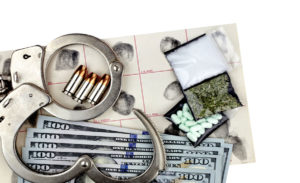Drug Trafficking Lawyers in Victoria
“Trafficking” has a very broad definition in the context of offences under the CDSA. Its legal definition includes the following activities:
- Selling
- Giving
- Transporting
- Administering
- Transferring
- Sending
- Delivering
The Crown does not necessarily need to prove that the substance in question was in fact a drug. If you hold out or represent any substance as a drug, that can be enough to convict you of trafficking in that drug.
Additionally, the Crown does not need to prove that you made a profit from the act. And giving a controlled substance away for free falls under the definition of this offence.
The investigation of your case will likely involve experienced police officers, whose mistakes may not be immediately apparent to someone with no legal training.
Bail Conditions for Drug Trafficking Charge in Victoria
Getting bail for this charge is very difficult. Depending on the amount and type of substance you are accused of trafficking, the onus may be on you to show the judge that you are not a danger to continue trafficking if you are released (this is called a “reverse onus provision”).
If you are released, You will likely be required to follow strict conditions, including an order prohibiting you from possessing a cellular phone. You may also be prohibited from leaving British Columbia, and be forced to turn in your passport to ensure you do not flee the country.
Defending Drug Trafficking Charge in Victoria
Trafficking charges arise in a variety of different ways, but two common scenarios include the following:
- The police receive an anonymous tip that you are selling drugs. They assign a group of undercover police officers to secretly watch your house and follow you from place to place for several hours each day, for several days or weeks. Eventually, they see what they believe is you making a drug transaction and arrest you immediately after the alleged transaction.
This first scenario raises the following legal issues that we will investigate thoroughly on your behalf. What is the source of the anonymous tip? Is that person reliable or unreliable? Does that person have any run-ins with the police previously, and did they have improper motives in bringing you to the attention of the police? What was the type, and value of the information the police had before they arrested you?
- The police set up a “sting” operation in an area of the city where they believe drug dealing activity is going on. Undercover police approach you or contact you by phone and attempt to arrange a sale of drugs. Eventually, you are alleged to have sold drugs to an undercover police officer.
This scenario engages a legal issue called “entrapment”. If the police are found to have “entrapped” or improperly enticed you into selling them drugs, it could result in your charges being resolved in your favour. The police are forbidden from randomly testing citizens to see if they can be persuaded into committing a crime. However, if the police have sufficient reason to believe you, or a certain place, is associated with criminal activity, they may be permitted to try to encourage the commission of a crime.
Determining whether the police entrapped you requires a careful assessment of all the evidence, and applying a complex legal standard. We are very familiar with this police tactic and can identify those cases where the police acted improperly.
The Sentence
The Crown Prosecutor asks the Judge to send you to jail in all but the least serious cases. Therefore, it is vital you have a dedicated lawyer by your side to put your best foot forward at this critical point in your case.
If you are found guilty of this offence, your sentence will be determined in large part by:
- What type of substance you were found guilty of trafficking;
- The amount of substances that was trafficked;
- The number of drug deals you were involved in;
- Whether you dealt the drugs to
- Who you dealt the drugs to.
You could get a LIFE SENTENCE if the substance you trafficked was:
- Cocaine
- Heroin
- Morphine
- Opium
- OxyContin
- Codeine
- GHB
In addition, if you could be subject to a mandatory minimum sentence of 1 or 2 years if your offence involved the use of violence or a weapon, a child, a criminal gang, or was omitted near a school, public park or any other place children are commonly found.
You could get as much as 10 years in jail if you trafficked LSD or psilocybin (the active ingredient in “magic mushrooms”).
You may spend up to 3 years in prison if the trafficked substance was to anabolic steroids, clonazepam, Nembutal, Seconal, Amytal, diazepram, or another barbiturate.





